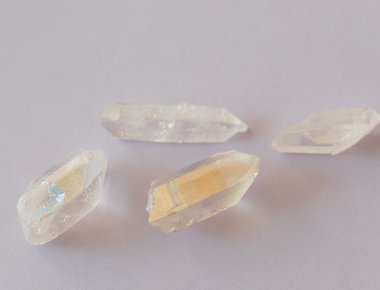Energy Minerals in Africa
The world is in the midst of a clean energy transition, and Africa is playing a key role. The continent is home to some of the world’s largest reserves of energy minerals, including lithium, cobalt, manganese, and graphite. These minerals are essential for the production of clean energy technologies, such as electric vehicles, solar panels, and wind turbines.
What are energy minerals?
Energy minerals are a group of minerals that are essential for the production of clean energy technologies. These minerals include:
- Lithium: Lithium is a soft, silvery-white metal that is used in the production of batteries. Lithium-ion batteries are the most common type of battery used in electric vehicles and other portable electronic devices.
- Cobalt: Cobalt is a hard, blue-black metal that is used in the production of high-performance batteries. Cobalt is also used in the production of magnets and other materials.
- Manganese: Manganese is a silvery-white metal that is used in the production of steel. Manganese is also used in the production of batteries, ceramics, and glass.
- Graphite: Graphite is a soft, black mineral that is used in the production of electrodes for batteries and other electronic devices. Graphite is also used in the production of lubricants and paints.
Why are energy minerals important for the clean energy transition?
Energy minerals are essential for the production of clean energy technologies. As the world transitions to clean energy, demand for these minerals is expected to grow significantly.
- Lithium-ion batteries are the most common type of battery used in electric vehicles. As the global market for electric vehicles grows, demand for lithium is expected to grow as well.
- Cobalt is used in the production of high-performance batteries. As the demand for electric vehicles and other battery-powered devices grows, demand for cobalt is expected to grow as well.
- Manganese is used in the production of steel. As the world builds more infrastructure to support clean energy, demand for steel is expected to grow, which will in turn drive demand for manganese.
- Graphite is used in the production of electrodes for batteries and other electronic devices. As the world’s reliance on electronics grows, demand for graphite is expected to grow as well.
Where are energy minerals found in Africa?
Africa is home to some of the world’s largest reserves of energy minerals. The following countries are among the leading producers of energy minerals in Africa:
- Democratic Republic of the Congo (DRC): The DRC is the world’s leading producer of cobalt. The country also has significant reserves of lithium, manganese, and graphite.
- South Africa: South Africa is the world’s leading producer of manganese. The country also has significant reserves of lithium and graphite.
- Australia: Australia is the world’s leading producer of lithium. The country also has significant reserves of cobalt and manganese.
- China: China is the world’s leading producer of graphite. The country also has significant reserves of lithium and cobalt.
What are the benefits of mining energy minerals in Africa?
The mining of energy minerals in Africa has the potential to bring significant economic benefits to the continent. For example, the DRC’s cobalt industry is estimated to be worth $10 billion per year, and South Africa’s manganese industry is estimated to be worth $5 billion per year.
The mining of energy minerals can also create jobs and boost economic growth in Africa. For example, the DRC’s cobalt industry employs over 1 million people, and South Africa’s manganese industry employs over 500,000 people.
However, the mining of energy minerals also has the potential to have negative environmental and social impacts.
For example, mining can pollute water supplies, destroy forests, and displace communities. It is important to ensure that the mining of energy minerals in Africa is done in a sustainable and responsible way that benefits all stakeholders.
How can Africa benefit from the exploitation of its energy minerals?
Africa can benefit from the exploitation of its energy minerals in a number of ways. For example, Africa can use its energy minerals to develop its own clean energy sector. Africa can also export its energy minerals to other countries, which will generate revenue for the continent.
It is important to ensure that the exploitation of Africa’s energy minerals is done in a way that benefits all stakeholders. This includes ensuring that the mining is done in a sustainable and responsible way, and that the benefits of the mining are shared equitably between the government, the companies involved in the mining, and the local communities.
Conclusion
The mining of energy minerals in Africa has the potential to bring significant economic benefits to the continent. However, it is important to ensure that the mining is done in a sustainable and responsible way that benefits all stakeholders.
0 Comments
Related Posts
Quick Links








